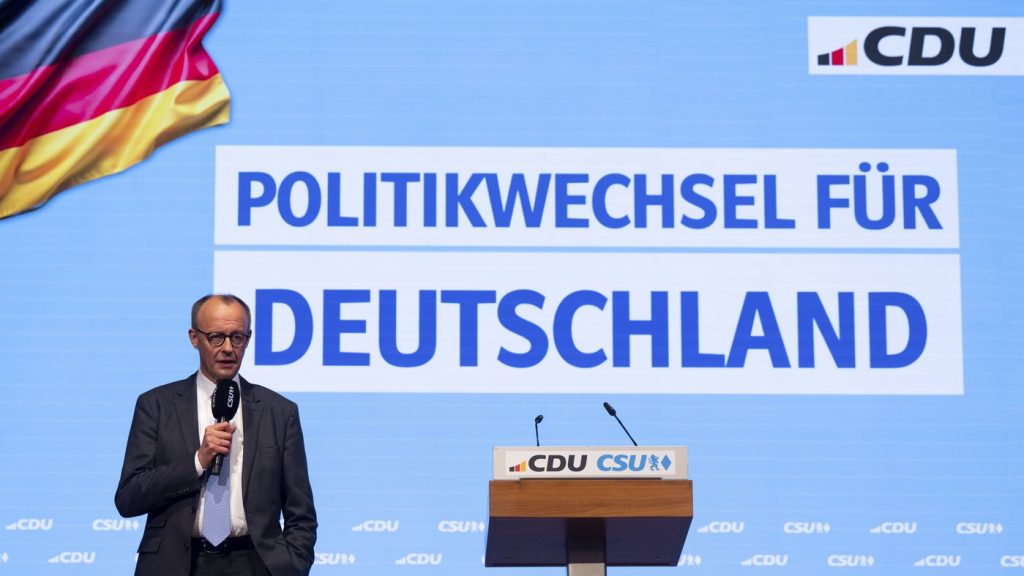On the eve of Germany's parliamentary elections, the political landscape is highly charged, with key figures making final appeals to voters. Opposition leader Friedrich Merz, representing the center-right Union bloc, aims to revive Germany's stagnant economy and assert Europe’s interests in light of a challenging U.S. administration. Merz emphasized that after "three years in opposition," it is time for a change and promised a stronger German voice within the European Union.
Incumbent Chancellor Olaf Scholz, leader of the center-left Social Democrats (SPD), remains hopeful for a last-minute surge in support despite trailing in the polls. The elections are scheduled for Sunday, following a campaign that has heavily focused on economic conditions, migration policies, and the geopolitical landscape regarding Ukraine and U.S.-Europe relations.
Polling data indicates a consistent lead for Merz's Union bloc, followed closely by the far-right Alternative for Germany (AfD), which is set for its best performance since World War II. The AfD, known for its anti-immigration stance, has no coalition partners willing to govern alongside it. Scholz's party has struggled to regain its footing after the collapse of his three-party coalition in November 2023, sparked by debates over economic revitalization, which resulted in these elections being called seven months earlier than originally scheduled.
At a closing rally in Munich, Merz stressed the importance of a robust German role in the EU. He stated, “Europe must be a player and not ask maybe to get a seat at a side table,” emphasizing the need for Germany to safeguard its interests against external pressures from Russia, China, and the U.S. Merz pointed out that Germany’s economic weaknesses must be addressed for the country to regain respect within Europe.
In recent weeks, Merz has also advocated for a more stringent stance on migration policy, leading to tensions as he proposed a motion to increase the number of migrants turned away at the borders. This motion received support from the AfD, sparking controversy and accusations of breaking a political taboo. However, Merz has firmly denied any intent to include the AfD in any coalition government discussions, reiterating: “We will under no circumstances discuss any talks, never mind negotiations or a participation in government, with AfD.”
On the campaign trail in Potsdam, Scholz questioned Merz's reliability while positioning the SPD as the main defense against a potential AfD influence in government. He urged voters to support his party to ensure a future without the far-right's participation. Scholz expressed his belief that many voters would make their decisions in the polling booth, stating, “I don’t believe in miracles, but in an election victory.”
If Merz succeeds in these elections, it remains uncertain whether he will be able to form a two-party coalition or if he would require a third partner, creating a more complicated political scenario. Senior conservative ally Markus Söder mentioned, “If we govern, we need few partners and not an endless number of them,” highlighting the potential challenges of coalition-building in a fragmented political environment.










